Exams 2021: 'Will they take our Covid grades seriously?'
- Published
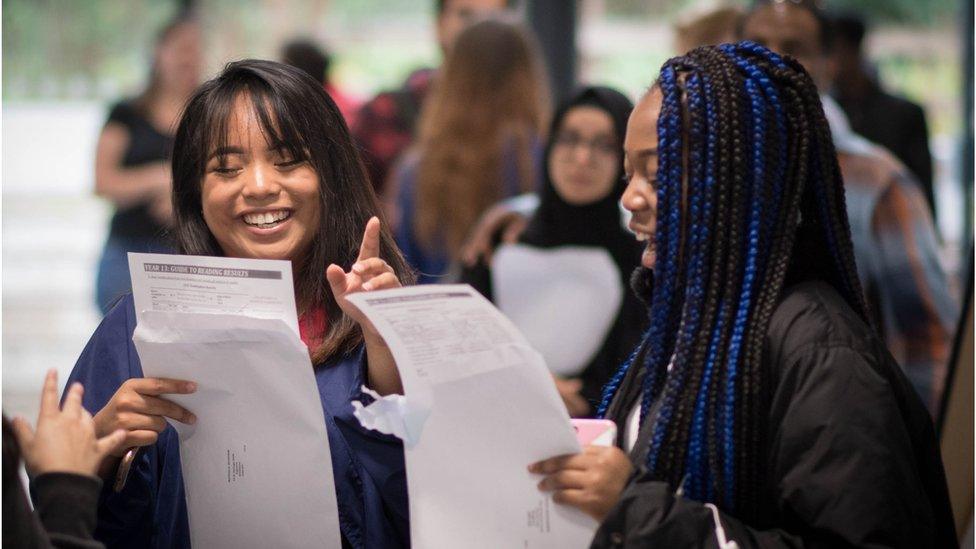
For students across the UK, this has been another year of uncertainty and disruption.
For the second year running, exams were cancelled, with final grades based on assessments by teachers.
Those receiving results this week have had both of their past two years of study interrupted by the pandemic.
Molly, aged 18, from Liverpool says she's feeling particularly anxious about her A-level results on Tuesday.
All the disruption means that she doesn't "feel in control of my own level of achievement".
"I feel like it's been a rollercoaster," she says.
"There have been times when I feel like it's better it happened this way, and there have been other times when I think, if I could, I would redo the whole two years. The anxiety comes in waves."
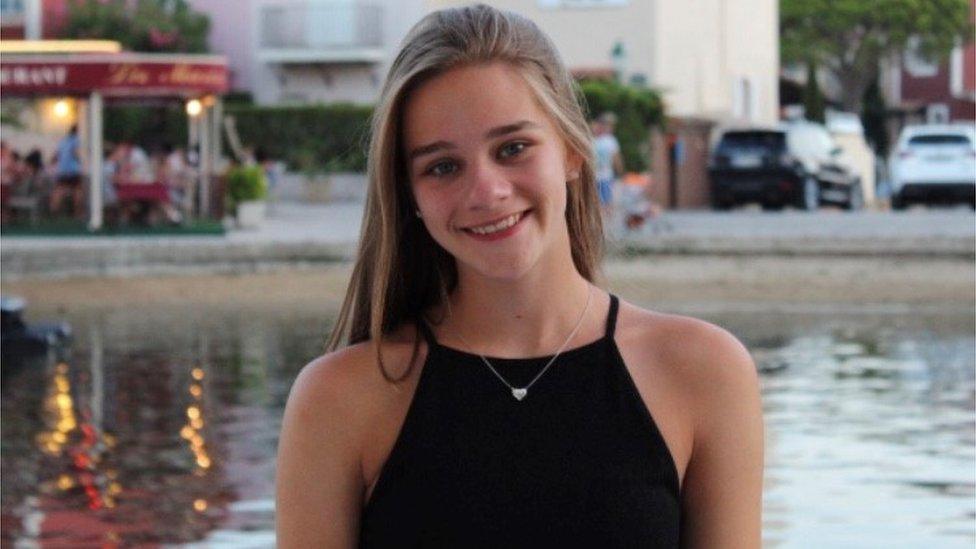
Molly worries employers won't think she sat "proper exams"
Molly worries how fair the system of teacher-assessed grades has been on students.
"Everybody has had a different experience and everyone has done a different type of assessment and I just don't think, when we get the grades, that it will be a true reflection of how well we could have done."
She is hoping for an A* and two As on Tuesday, and originally applied to do a psychology degree. But the experience of studying in a pandemic led her to defer to do a high-level diploma in dance at the Northern Ballet School.
She is also concerned her qualifications may be less valued in the future.
"I feel employers might look at our grades and say that was the year Covid happened and you didn't sit proper exams."
'I just really wanted to sit my exams'
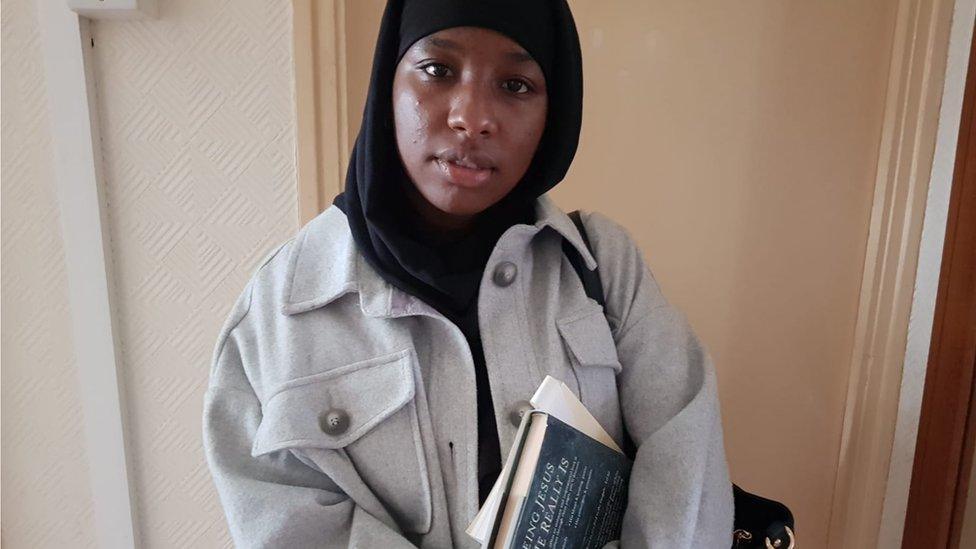
A-level student Fatima was really upset when exams were cancelled
Fatima from south London is feeling quite optimistic about achieving her target of three A grades in her A-level exams - in English literature, geography and psychology.
But she's not always felt that way. She's had ups and downs throughout the year and her views have fluctuated. She had to go into isolation twice and missed four weeks of school.
She says: "After the second lockdown, I was unsure if I could pass exams but I really just wanted to sit them. When I found out I couldn't do exams, I was really upset."
Fatima believes teachers will grade her fairly but worried when exams were cancelled.
"I didn't want a repeat of last year, especially because I live in a low-income neighbourhood. Are they going to assume I'm going to get bad grades because of the area I live in? I don't trust the government to decide that for me."
Like Molly, Fatima decided not to go to university - she's doing a two-year public policy apprenticeship at Ofcom.
She found her involvement with youth charity The Mix a great help during lockdown. It allowed her to hook up with other young people remotely, to watch and discuss films.
"Especially because I'm quite extroverted, being in my house all day is literally the worst thing you could do to me," she says.
Holly Turner from the Mix says the number of conversations around school and education has almost tripled on their helpline year-on-year.
"We've seen just how difficult it has been for students since the start of the pandemic. They have experienced severe disruption to their education, and the constant change and uncertainty is having a serious impact on their mental health."
'We'd missed so much'
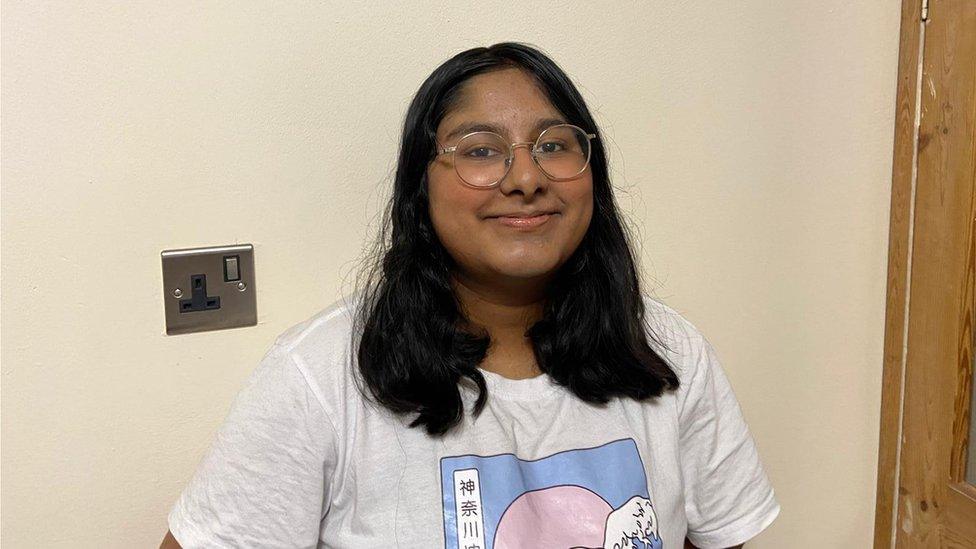
GCSE student Zoya says she was confused by the contradictory messages
Zoya, aged 16, from Lancashire, says she is feeling really nervous about getting her GCSE results, which are out two days after A-levels.
"Normally, Year 11 would feel stress at the end of the year but we had stress from the beginning because we'd missed so much.
"Last year, in Year 10, they didn't teach us anything new. We were just catching up while studying for our mocks so it was very hectic. So many isolated so much, they were off for most of the school year."
The experience has not put her off studying. She's aiming to do A-levels next year in psychology, English literature, English language. performing arts and fine arts.
'It really affected my mental health'
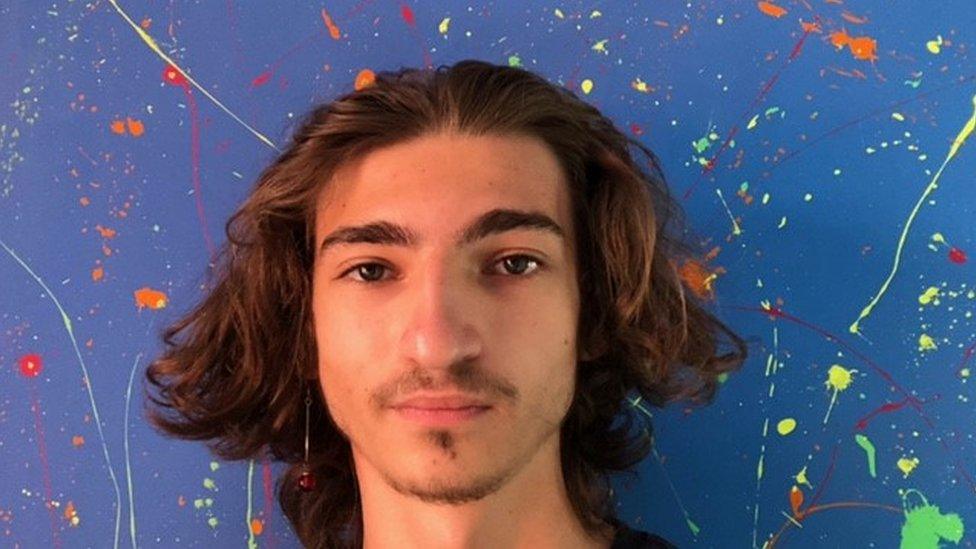
BTec student David has found studying from home tough
David, 17, will get his results in the three BTec subjects he took in computing, media and criminology.
BTecs are based more on coursework than exams, and David says he "found it tough to get into the mindset of working from home," especially not seeing his friends from college.
"It really affected my mental health at one stage, which took a toll not only on me personally but also my work, because I was finding it hard to have the motivation."
The lack of resources at home created problems for his coursework. He struggled, for example, to do the work needed for his media course, as he didn't have access to the cameras and lighting equipment available in the college.
Despite finding the process tiring, David saw it through and has a conditional offer from the University of Hull to study social work, although he is keeping his options open.

What questions do you have about this year's results?
In some cases your question will be published, displaying your name, age and location as you provide it, unless you state otherwise. Your contact details will never be published. Please ensure you have read our terms & conditions and privacy policy.
Use this form to ask your question:
If you are reading this page and can't see the form you will need to visit the mobile version of the BBC website to submit your question or send them via email to YourQuestions@bbc.co.uk, external. Please include your name, age and location with any question you send in.